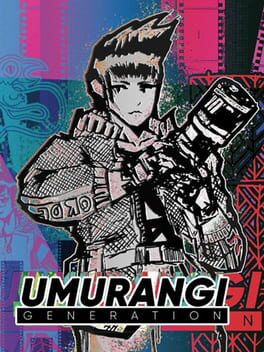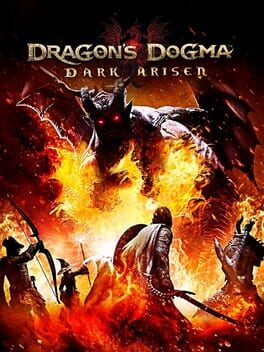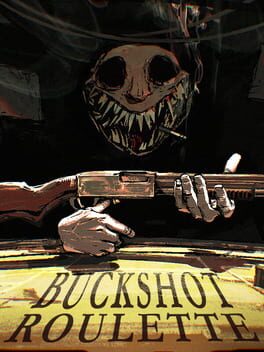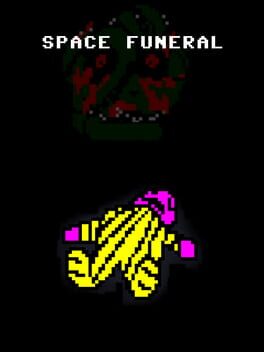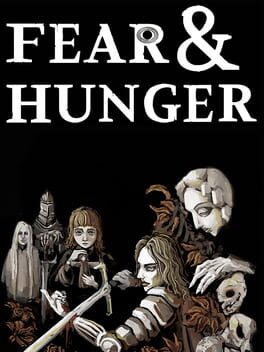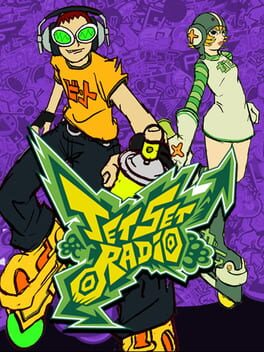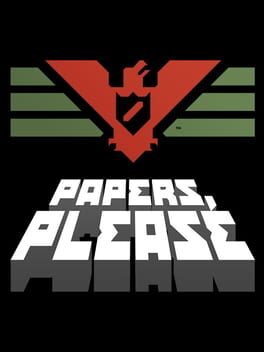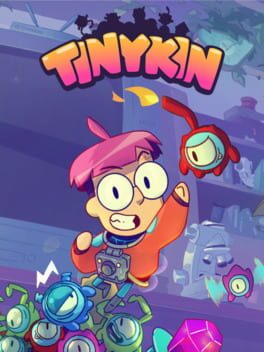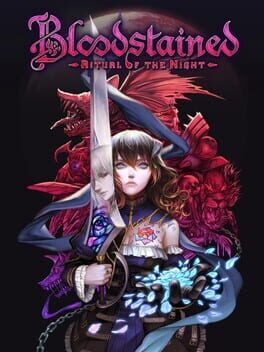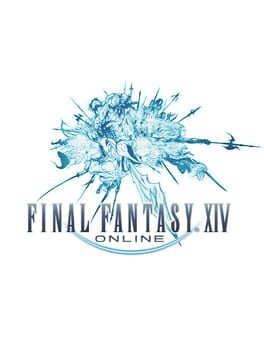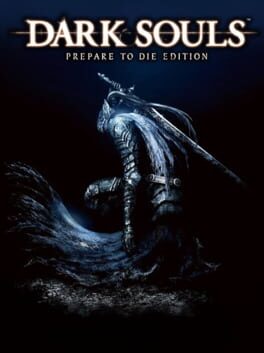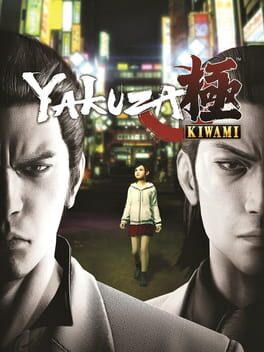Fumio
2020
It's incredible how heavily the narrative of "for a game about observation the timer is really polluting the entire experience" as if the timer isn't only a necessity in the pursuit of a perfect file and as if the levels aren't designed with the intention of replayability. You are only as limited by the timer as you feel the need to be, and I think that speaks volumes more about the individual than the game's arbitrary score attack elements.
That said Umurangi Generation isn't a perfect game by any means, namely dragged down by jank controls and sometimes awkward placement of objectives that feel as if they intrinsically limit creativity behind the player's approach. Yet overall the game's stellar visuals, themes, and especially the soundtrack are indisputably all bangers. There's a clear Evangelion influence present that took me by surprise, but wholly welcomed, and I believe it's perfectly encapsulated by the set pieces in a way that generates an extremely eerie atmosphere that is wholly unique to itself. It provides the player with the inescapable sensation of being a spectator to something much greater, and Macro further expands upon that with some of the best levels of the entire game in my opinion.
It's a short, tight experience that I don't regret at all.
That said Umurangi Generation isn't a perfect game by any means, namely dragged down by jank controls and sometimes awkward placement of objectives that feel as if they intrinsically limit creativity behind the player's approach. Yet overall the game's stellar visuals, themes, and especially the soundtrack are indisputably all bangers. There's a clear Evangelion influence present that took me by surprise, but wholly welcomed, and I believe it's perfectly encapsulated by the set pieces in a way that generates an extremely eerie atmosphere that is wholly unique to itself. It provides the player with the inescapable sensation of being a spectator to something much greater, and Macro further expands upon that with some of the best levels of the entire game in my opinion.
It's a short, tight experience that I don't regret at all.
"Though I called you here to me, it was ever your own feet, your own will that brought you."
Dragon's Dogma is a game that encapsulates the very essence of a game being about the destination rather than the journey. I feel this isn't immediately able to be grasped until the game plays its whole hand. Both the setting and the plot are mundane at best, pitting the player against goblin and cyclops across rolling green hills with incredibly standard sword and board gameplay. The centerpiece of your quest to slay the dragon and restore peace is a single castle-town that plays host to a lineup of characters who are consistently as they appear and no more; stripped back to as-needed personality quirks designed to keep things moving forward, not tropes per se but instead actors playing as set pieces for the progression of plot and world-building sub-stories. I'd argue there is very little frivolous dialogue, everything is seemingly purposed to the ends of your journey as the hero; if not about Grigori directly then about the political state of the kingdom and the duke or about the cult who act in idealization of Grigori.
In this sense there is very little to ultimately consider outstanding, but just the same there is very little that impedes the player from simply experiencing the game and the world laid before them. Dragon's Dogma encourages sandbox exploration and engaging in all that you come across. The rewards are often carefully measured and exciting, very rarely did I feel like I wasted my time on a side venture through a dungeon or a side quest. I'd say this is in part due to an extremely satisfying progression system and the freedom of experimenting with different classes and skills, though I did find myself wanting for more cross-class options.
Dragon's Dogma fully understands what it is, a facet of its being that ultimately decides whether any individual will love or hate the experience; it offers itself humbly as an experience to be immersed in, not as a story that intends to tell itself. It becomes so natural to get lost in the world handed to you on a silver platter; which is further serviced by the game's ending in a more meta sense.
There's a lot at play I could speak on. The pawn system's ingenuity, how each class feels like an entirely different game to play, how the DLC functionally drags the entire game up a full letter grade. Honestly these things cannot be explained, but are instead tactile in nature; words cannot mirror experiencing. I figure it's best to leave it at that.
[Disclaimer: I played the game with a mod that removes stamina usage when sprinting. The game is borderline unbearable early game without it, and my score takes that into consideration. Mileage may vary without such a mod among other possible QOL mods that exist, though this was the only one I used.]
Dragon's Dogma is a game that encapsulates the very essence of a game being about the destination rather than the journey. I feel this isn't immediately able to be grasped until the game plays its whole hand. Both the setting and the plot are mundane at best, pitting the player against goblin and cyclops across rolling green hills with incredibly standard sword and board gameplay. The centerpiece of your quest to slay the dragon and restore peace is a single castle-town that plays host to a lineup of characters who are consistently as they appear and no more; stripped back to as-needed personality quirks designed to keep things moving forward, not tropes per se but instead actors playing as set pieces for the progression of plot and world-building sub-stories. I'd argue there is very little frivolous dialogue, everything is seemingly purposed to the ends of your journey as the hero; if not about Grigori directly then about the political state of the kingdom and the duke or about the cult who act in idealization of Grigori.
In this sense there is very little to ultimately consider outstanding, but just the same there is very little that impedes the player from simply experiencing the game and the world laid before them. Dragon's Dogma encourages sandbox exploration and engaging in all that you come across. The rewards are often carefully measured and exciting, very rarely did I feel like I wasted my time on a side venture through a dungeon or a side quest. I'd say this is in part due to an extremely satisfying progression system and the freedom of experimenting with different classes and skills, though I did find myself wanting for more cross-class options.
Dragon's Dogma fully understands what it is, a facet of its being that ultimately decides whether any individual will love or hate the experience; it offers itself humbly as an experience to be immersed in, not as a story that intends to tell itself. It becomes so natural to get lost in the world handed to you on a silver platter; which is further serviced by the game's ending in a more meta sense.
There's a lot at play I could speak on. The pawn system's ingenuity, how each class feels like an entirely different game to play, how the DLC functionally drags the entire game up a full letter grade. Honestly these things cannot be explained, but are instead tactile in nature; words cannot mirror experiencing. I figure it's best to leave it at that.
[Disclaimer: I played the game with a mod that removes stamina usage when sprinting. The game is borderline unbearable early game without it, and my score takes that into consideration. Mileage may vary without such a mod among other possible QOL mods that exist, though this was the only one I used.]
2023
Exceptionally well put together, doesn't overstay its welcome, and offers some briefly engaging logic puzzling. Atmosphere and visuals are perfect as well.
That said it doesn't quite have any real staying power past its incredible first impressions. Double or nothing is fun for a round or two but the player has every advantage in each round shy of some seriously bad item RNG which makes it difficult to remain engaged. I hesitate to call this unfortunate at any rate because the game is perfectly fine as a short, thrilling romp based on an incredibly bizarre premise. A shotgun experience, if you will, even.
That said it doesn't quite have any real staying power past its incredible first impressions. Double or nothing is fun for a round or two but the player has every advantage in each round shy of some seriously bad item RNG which makes it difficult to remain engaged. I hesitate to call this unfortunate at any rate because the game is perfectly fine as a short, thrilling romp based on an incredibly bizarre premise. A shotgun experience, if you will, even.
2010
2009
Demon's Souls stands as the blueprint for the Action RPG genre as a whole moving forward, but unfortunately I disagree with the sentiment that this entitles it to strictly praise through nostalgia colored opinion. Some seem to evaluate it more highly solely due to being precursor for the Souls franchise, but after examining it detached from the rest of the franchise I found that I couldn't appreciate it in quite the same way. While its world design and tone are unmatched and deserving of recognition, the atmosphere is for me the main highlight of the game that largely covers its other shortcomings.
Level design in Demon's Souls ultimately boils down to reskinned linear walkways that plays host to repetitive encounters that forces the player to engage enemies one at a time in a row. Sometimes, there's a second enemy stacked on top of the first who will almost always alternate attacks. Even more rarely, there's a third guy shooting arrows at you behind the first two. There's very little room for variety in strategy due to largely only having front and back as options for dodging consistently. This leads to dealing with the occasional larger crowd of enemies being extremely flawed as your only tactics are backing up or blocking until you can sneak in a jab and stagger a few of them with hopes of thinning the herd.
The biggest breakaway from this is somehow also, in my opinion, the worst level of the game, 5-2, which features Miyazaki's first and potentially largest poison swamp. The fastest way through the level is blindly dragging your way through the unrollable swamp water until the end, at which point you can sprint through the remainder of visually clustered and chaotic wooden platforms in a blind fumble for the boss.
Which leads me to the bosses themselves; what about them, after all? They contribute as much to the identity of each stage as the level design itself, so how do they fare?
Well... I can count maybe two bosses that challenge the player mechanically; one being the final real fight of the game, and the other being Flamelurker — who, even then, is terribly simplistic in having just three attacks, but fortunately ramps up in intensity the lower his health gets. The others are a mixed bag. Four or five of the lot have charming gimmicks that offer no real challenge after you grasp the idea — or, even worse yet, the ones who have a frustrating gimmick and are hardly interactive at all. The rest sort of just...don't move from one spot and blindly swing their arms around. There is the exception in this crowd of the beloved Penetrator, who presents as a complete bad-ass initially until you stagger him to death and realize he has no real form of ranged attack or gapcloser to punish healing. The "prey slaughtered" tagline seems oddly more fitting here than it ever did in Bloodborne.
Although Demon's Souls holds a special place as the progenitor of a franchise I'd consider some of the most fun I've had in gaming, I can't hold Demon's Souls to that same level of prestige. It's ultimately a game with little to pick apart in my humble opinion, and little intrigue or variety between runs. I likely won't be revisiting this game a third time.
Level design in Demon's Souls ultimately boils down to reskinned linear walkways that plays host to repetitive encounters that forces the player to engage enemies one at a time in a row. Sometimes, there's a second enemy stacked on top of the first who will almost always alternate attacks. Even more rarely, there's a third guy shooting arrows at you behind the first two. There's very little room for variety in strategy due to largely only having front and back as options for dodging consistently. This leads to dealing with the occasional larger crowd of enemies being extremely flawed as your only tactics are backing up or blocking until you can sneak in a jab and stagger a few of them with hopes of thinning the herd.
The biggest breakaway from this is somehow also, in my opinion, the worst level of the game, 5-2, which features Miyazaki's first and potentially largest poison swamp. The fastest way through the level is blindly dragging your way through the unrollable swamp water until the end, at which point you can sprint through the remainder of visually clustered and chaotic wooden platforms in a blind fumble for the boss.
Which leads me to the bosses themselves; what about them, after all? They contribute as much to the identity of each stage as the level design itself, so how do they fare?
Well... I can count maybe two bosses that challenge the player mechanically; one being the final real fight of the game, and the other being Flamelurker — who, even then, is terribly simplistic in having just three attacks, but fortunately ramps up in intensity the lower his health gets. The others are a mixed bag. Four or five of the lot have charming gimmicks that offer no real challenge after you grasp the idea — or, even worse yet, the ones who have a frustrating gimmick and are hardly interactive at all. The rest sort of just...don't move from one spot and blindly swing their arms around. There is the exception in this crowd of the beloved Penetrator, who presents as a complete bad-ass initially until you stagger him to death and realize he has no real form of ranged attack or gapcloser to punish healing. The "prey slaughtered" tagline seems oddly more fitting here than it ever did in Bloodborne.
Although Demon's Souls holds a special place as the progenitor of a franchise I'd consider some of the most fun I've had in gaming, I can't hold Demon's Souls to that same level of prestige. It's ultimately a game with little to pick apart in my humble opinion, and little intrigue or variety between runs. I likely won't be revisiting this game a third time.
2018
Fear & Hunger is one of those rare hardcore games that never punishes you in a way that feels undeserved. Much of the game could boil down to "fuck around and find out". The bad RNG is nearly always weighted against an appropriate reward for your risk, and after you take the time to learn how severe those punishments can be - namely through trial and error - you come to have a deeper and personalized understanding of when it feels worthwhile to risk it all on a coinflip or when engaging the enemy.
It took me quite awhile to get around to finishing this one, and I'm happy I did. It's well worth the experience and left me scrounging the wiki for hours to fill the void of curiosity left burning in your chest after achieving just one of the endings. It's very rare that a game affects me in such a way in its tone and worldbuilding, though I suppose a large amount of this game can be summarized with "this is just Berserk". Still, that's only a small portion of it. The game has an impressively large amount of content for how small the map intimately becomes. Every area has purpose, which builds a game that doesn't waste your time in spite of being terribly reset-heavy when learning the ropes initially.
I wish more games applied half the concepts and tricks this game pulls off seamlessly, I could go on and on about it honestly but I'm not sure I could do it much service.
It took me quite awhile to get around to finishing this one, and I'm happy I did. It's well worth the experience and left me scrounging the wiki for hours to fill the void of curiosity left burning in your chest after achieving just one of the endings. It's very rare that a game affects me in such a way in its tone and worldbuilding, though I suppose a large amount of this game can be summarized with "this is just Berserk". Still, that's only a small portion of it. The game has an impressively large amount of content for how small the map intimately becomes. Every area has purpose, which builds a game that doesn't waste your time in spite of being terribly reset-heavy when learning the ropes initially.
I wish more games applied half the concepts and tricks this game pulls off seamlessly, I could go on and on about it honestly but I'm not sure I could do it much service.
2012
Jet Set Radio is initially a difficult game to evaluate. My thoughts weren't dissimilar to the majority; a game that should be played mostly for the experience, but is largely outclassed by its successor, Jet Set Radio Future. At the surface the game is bogged down by clunky controls and borderline insane difficulty spikes that could make a Disney princess swear like a sailor. I tried the tutorial, of course, after hearing of its infamy and similarly walled on the inability to even do 30 tricks in a row and struggling to grasp the concept of maintaining momentum being so...unintuitive while attempting trick loops. I threw in the towel and started the story, where I grew increasingly frustrated with my inability to not bonk off of every wall and how, at the slightest inconvenience, my character would grind to a halt. Grind City in particular made me reconsider whether I wanted to finish the game at all, at which point all of my forward momentum to actually finishing the game was dashed (much like my attempts to rail grind...) and I was content with the evaluation that the game was just trash when the majority online seemed to agree with the sentiment after a few hours of similar experience.
I slogged through what I had left of Chapter 2 out of sheer spite and decided "maybe it's just this one particular level that blows". After all, the grind rails are way too inconsistent and the verticality is plain frustrating when the camera controls are non-existent and you can't make heads or tails of the level layout.
I couldn't have been more wrong at the time when I inevitably hit the single largest filter in the game, "Fight or Flight".
I don't generally consider myself to be someone who struggles to pick up a game, but in this instance I was nearly finished with the roughly ten hour story and hadn't yet been able to grasp why the game is so beloved. This experience may have shaved a dozen years off my life in just a couple hours of hair-pulling torment.
I threw in the towel and put the game down. I decided to read more online, maybe I was just missing something. It was a review on this site, by the user Drax, that encouraged me to re-evaluate my stance on the game and analyze exactly why I was struggling. After all it wasn't like the controls were necessarily hindering me as much as I wanted to blame them. I took the time to look at things from a different perspective, in the light of a 3D platformer that had a focus on the optimization of movement and time rather than just the free-flowing exploration most skating games ask you to embrace. The game asks you not to understand just how to move faster in the moment - but to totally conquer the map and its possibilities. Things began to fall into place, I already knew the levels I just had to apply that knowledge. Before I knew it I blew through the end of the game and decided I would tackle the infamous tutorial again. I hit a 100 trick loop in just a dozen attempts; suddenly the momentum of jumping from rail to rail was natural. Turns out a dozen hours of practice was maybe necessarily to get a handle on the movement. The very idea of getting Jet rank in every level ceased to be something feasible only to the most absolutely deranged fanboys, and before I realized it I sank another 20 hours in the game to clean up the rest of the achievements.
By this point I realized something I'd consider a fundamental truth of the game; the game's controls aren't bad. Not in the slightest. Unintuitive at first? Sure, but I'd argue the game's controls are simply difficult. They're consistent by all metrics. Even those sudden moments where your character shoots far left for seemingly "no reason" was just the hair difference of the twitch of the thumbstick by accident. Jet Set Radio is not an unfair game, it is just a tough game - and then, after taking the time to know it, one as natural as breathing. Knowledge and muscle memory are extremely valuable, which may not be everyone's cup of tea, but you just gotta learn the exact same way a child learns to skate.
I'm glad I was ultimately able to come to terms with what turned out to be nothing more than a monumental skill issue. Jet Set Radio is a fantastic game, and I had a blast with the strategical aspects and the process of familiarizing myself with each route. The level design is generally fantastic (even Grind City, once you actually learn how to cross the centerpiece of the stage, which the game makes no effort to make you even able to see the jump across the center) and I'm truly glad I gave it a fair shake in the long run, thanks in no small part to the amazing community willing to go to bat for it.
I still absolutely HATE Grind City though and it's not even close, I'm gonna hear the fall damage crunch in my nightmares playing on repeat for years.
I slogged through what I had left of Chapter 2 out of sheer spite and decided "maybe it's just this one particular level that blows". After all, the grind rails are way too inconsistent and the verticality is plain frustrating when the camera controls are non-existent and you can't make heads or tails of the level layout.
I couldn't have been more wrong at the time when I inevitably hit the single largest filter in the game, "Fight or Flight".
I don't generally consider myself to be someone who struggles to pick up a game, but in this instance I was nearly finished with the roughly ten hour story and hadn't yet been able to grasp why the game is so beloved. This experience may have shaved a dozen years off my life in just a couple hours of hair-pulling torment.
I threw in the towel and put the game down. I decided to read more online, maybe I was just missing something. It was a review on this site, by the user Drax, that encouraged me to re-evaluate my stance on the game and analyze exactly why I was struggling. After all it wasn't like the controls were necessarily hindering me as much as I wanted to blame them. I took the time to look at things from a different perspective, in the light of a 3D platformer that had a focus on the optimization of movement and time rather than just the free-flowing exploration most skating games ask you to embrace. The game asks you not to understand just how to move faster in the moment - but to totally conquer the map and its possibilities. Things began to fall into place, I already knew the levels I just had to apply that knowledge. Before I knew it I blew through the end of the game and decided I would tackle the infamous tutorial again. I hit a 100 trick loop in just a dozen attempts; suddenly the momentum of jumping from rail to rail was natural. Turns out a dozen hours of practice was maybe necessarily to get a handle on the movement. The very idea of getting Jet rank in every level ceased to be something feasible only to the most absolutely deranged fanboys, and before I realized it I sank another 20 hours in the game to clean up the rest of the achievements.
By this point I realized something I'd consider a fundamental truth of the game; the game's controls aren't bad. Not in the slightest. Unintuitive at first? Sure, but I'd argue the game's controls are simply difficult. They're consistent by all metrics. Even those sudden moments where your character shoots far left for seemingly "no reason" was just the hair difference of the twitch of the thumbstick by accident. Jet Set Radio is not an unfair game, it is just a tough game - and then, after taking the time to know it, one as natural as breathing. Knowledge and muscle memory are extremely valuable, which may not be everyone's cup of tea, but you just gotta learn the exact same way a child learns to skate.
I'm glad I was ultimately able to come to terms with what turned out to be nothing more than a monumental skill issue. Jet Set Radio is a fantastic game, and I had a blast with the strategical aspects and the process of familiarizing myself with each route. The level design is generally fantastic (even Grind City, once you actually learn how to cross the centerpiece of the stage, which the game makes no effort to make you even able to see the jump across the center) and I'm truly glad I gave it a fair shake in the long run, thanks in no small part to the amazing community willing to go to bat for it.
I still absolutely HATE Grind City though and it's not even close, I'm gonna hear the fall damage crunch in my nightmares playing on repeat for years.
2013
2022
Tinykin is a difficult game to evaluate.
Is it fun? Sure, the movement feels good, tight, and responsive. Skating around levels on your soapboard is satisfying and quick. The levels are massive and intuitively designed, possibly some of the best 3D level design I've experienced for that matter; constantly offering multiple options to explore that always seem to loop back in on themselves and branch into other routes. After getting the hang of the game it flows extremely naturally and you wind up completing the entire level without ever losing the wind in your sails until, essentially, the very end when you're just doing cleanup of the last few ambrosia you missed (this game's sort of "coin" collectible, with over a thousand per level).
The visuals are incredibly charming as well, transforming everyday objects into not just obstacles but things that are functional for the NPCs as much as they are engaging to interact with. One particular level has an entire sink with a running faucet that overflows into an irrigation system, using sponges for farmland (which happen to be as evergreen as grass). The character designs are similarly cute and visually interesting.
And... Surprisingly, the game's writing is pretty good. There's actually somehow relatively interesting politics internally from stage to stage that showcases thoughtful worldbuilding. Similarly I didn't expect the very ending to be so... Strangely melancholic and tragic. Still, it wasn't an unwelcomed tonal shift to close out the ten hour runtime.
So what's the hang-up? Why can't I rate it any higher when the game is so expertly and lovingly crafted?
The game is just... Too easy. It feels like wasted potential. There isn't a single stretch of difficult platforming to be seen nor is there an engaging puzzle. The highest compliment I can give this game amounts to "the most fun you can have with your brain turned off", which is an unfortunate statement to have to make. There's no fail state, no way to be punished or to make a decision that can lead to any form of punishment. You can't even lose progress in longer stretches of vertical platforming because there are shortcuts to the bottom every layer up.
I'm not asking for tedium, but even Mario Odyssey, a game that (at times) just hands you a decent amount of your moons for free in the name of accessibility, still offers entirely optional venues for sometimes extremely challenging platforming. I don't think this is a particularly difficult design choice to at least keep in mind, but what Tinykin offers in the ways of intriguing challenge is entirely zero. I understand that challenge isn't the point of every game, games are made to be fun, but it's the extreme lack of stimulation I felt while engaging with the content that bogged down an otherwise great experience.
I still highly recommend the game in spite of this if you have a few hours to burn and find yourself even remotely interested. It's short and I do believe it deserves full support, but I just found it lacking. I hope they continue to make games as they clearly have an incredible vision for this type of thing.
Is it fun? Sure, the movement feels good, tight, and responsive. Skating around levels on your soapboard is satisfying and quick. The levels are massive and intuitively designed, possibly some of the best 3D level design I've experienced for that matter; constantly offering multiple options to explore that always seem to loop back in on themselves and branch into other routes. After getting the hang of the game it flows extremely naturally and you wind up completing the entire level without ever losing the wind in your sails until, essentially, the very end when you're just doing cleanup of the last few ambrosia you missed (this game's sort of "coin" collectible, with over a thousand per level).
The visuals are incredibly charming as well, transforming everyday objects into not just obstacles but things that are functional for the NPCs as much as they are engaging to interact with. One particular level has an entire sink with a running faucet that overflows into an irrigation system, using sponges for farmland (which happen to be as evergreen as grass). The character designs are similarly cute and visually interesting.
And... Surprisingly, the game's writing is pretty good. There's actually somehow relatively interesting politics internally from stage to stage that showcases thoughtful worldbuilding. Similarly I didn't expect the very ending to be so... Strangely melancholic and tragic. Still, it wasn't an unwelcomed tonal shift to close out the ten hour runtime.
So what's the hang-up? Why can't I rate it any higher when the game is so expertly and lovingly crafted?
The game is just... Too easy. It feels like wasted potential. There isn't a single stretch of difficult platforming to be seen nor is there an engaging puzzle. The highest compliment I can give this game amounts to "the most fun you can have with your brain turned off", which is an unfortunate statement to have to make. There's no fail state, no way to be punished or to make a decision that can lead to any form of punishment. You can't even lose progress in longer stretches of vertical platforming because there are shortcuts to the bottom every layer up.
I'm not asking for tedium, but even Mario Odyssey, a game that (at times) just hands you a decent amount of your moons for free in the name of accessibility, still offers entirely optional venues for sometimes extremely challenging platforming. I don't think this is a particularly difficult design choice to at least keep in mind, but what Tinykin offers in the ways of intriguing challenge is entirely zero. I understand that challenge isn't the point of every game, games are made to be fun, but it's the extreme lack of stimulation I felt while engaging with the content that bogged down an otherwise great experience.
I still highly recommend the game in spite of this if you have a few hours to burn and find yourself even remotely interested. It's short and I do believe it deserves full support, but I just found it lacking. I hope they continue to make games as they clearly have an incredible vision for this type of thing.
Just barely a 4/5 experience for me, but my run was partially saved by heavily investing solely in luck and getting a ton of drops that made a late-game that would otherwise be grindy and overbearing relatively painless by the time I actually sat down and started to interact with the systems in place.
I can't heavily criticize Bloodstained for particularly anything, but neither is this an experience that totally blew my socks off either. It was just a solid ride start to finish.
I can't heavily criticize Bloodstained for particularly anything, but neither is this an experience that totally blew my socks off either. It was just a solid ride start to finish.
A story that, now that the fat has been trimmed from it in the form of 100lbs of fetch quest content, is serviceable yet charming. It has a lot of threads that are all but abandoned in the subsequent expansion but stands on its own as a captivating experience that, now totally free, is well worth experiencing for anyone remotely interested in MMOs.
2022
Going through my logs and wanted to write a brief retrospective now that I'm no longer blinded by the "it's finally here" hype.
My most anticipated game of 2022 wound up leaving no lasting impressions on me whatsoever. Instead I felt empty after completing it. This was the game I waited so long for? Word of Elden Ring's arrival had been passed down, the coming of the most innovative Soulsborne game yet.
Instead we got a game that showcased more of Miyazaki's favorite tricks, complete with the usual bells and whistles, set to an open world with shockingly little intrigue that we hadn't already seen before again and again. This time, however, it's open world with a crafting system I hardly touched, and a beloved horse.
Well, at least the horse was a fun touch.
Ultimately I'd say the game just feels more like "Dark Souls but BIG" instead of "Dark Souls but open world".
I don't think open world lent itself to this title very well and it critically lacked the intricate and memorable level design of prior levels in favor of, what I would describe as, content bloat. I stopped being excited about those little side dungeons around the time I realized I'd already seen all of the dungeon bosses and had no use for any of the rewards they offered. The highs are as high as ever, the feeling of beating the fight that'd been kicking your ass for five hours straight is hardly matched in gaming regardless of genre. Yet, Elden Ring's runtime is padded with significantly more mids than highs, fights you forget not so long after. What does this equate to? The game's runtime may be twice the length of Dark Souls 1 or 3, but somehow you're left with about as many memorable moments as games that are significantly smaller - but the amount of quality content in those titles is so much more dense.
Frankly another thing Elden Ring lacked for me was a distinct lack of lows that often tend to set the tone of the Soulsborne games, and often are talked about and cherished as much as anything else. Blighttown and Horse Fuck Valley are looked back upon with as much fondness as Artorias and Slave Knight Gael (until it's time to replay those games, and then suddenly they're the worst things ever) but I would argue this game lacks anything of the sort as its broadly generic dungeon layouts sacrifice challenging (and sometimes nonsense bullshit) design in favor of something like conforming to a formula. Shy of the dungeon that requires the key beneath the tutorial area (which I foolishly challenged at a very early level and got walled on the boss for an entire evening), I can hardly recall anything as memorably frustrating that made me reassess my approach and question if I was getting skill issued or not.
Overall Elden Ring was an interesting experience, and I'm sure it was for the devs as well, but I'm hoping for a return to form in their future projects. It's still a solid title, but I couldn't rate it any higher than anything but DS2 as someone who really wasn't engaged by the idea of "you can go anywhere". Open world is hard to get right, I'd even argue it's a flawed concept inherently in many cases, and I think Elden Ring really did miss the mark on this.
My most anticipated game of 2022 wound up leaving no lasting impressions on me whatsoever. Instead I felt empty after completing it. This was the game I waited so long for? Word of Elden Ring's arrival had been passed down, the coming of the most innovative Soulsborne game yet.
Instead we got a game that showcased more of Miyazaki's favorite tricks, complete with the usual bells and whistles, set to an open world with shockingly little intrigue that we hadn't already seen before again and again. This time, however, it's open world with a crafting system I hardly touched, and a beloved horse.
Well, at least the horse was a fun touch.
Ultimately I'd say the game just feels more like "Dark Souls but BIG" instead of "Dark Souls but open world".
I don't think open world lent itself to this title very well and it critically lacked the intricate and memorable level design of prior levels in favor of, what I would describe as, content bloat. I stopped being excited about those little side dungeons around the time I realized I'd already seen all of the dungeon bosses and had no use for any of the rewards they offered. The highs are as high as ever, the feeling of beating the fight that'd been kicking your ass for five hours straight is hardly matched in gaming regardless of genre. Yet, Elden Ring's runtime is padded with significantly more mids than highs, fights you forget not so long after. What does this equate to? The game's runtime may be twice the length of Dark Souls 1 or 3, but somehow you're left with about as many memorable moments as games that are significantly smaller - but the amount of quality content in those titles is so much more dense.
Frankly another thing Elden Ring lacked for me was a distinct lack of lows that often tend to set the tone of the Soulsborne games, and often are talked about and cherished as much as anything else. Blighttown and Horse Fuck Valley are looked back upon with as much fondness as Artorias and Slave Knight Gael (until it's time to replay those games, and then suddenly they're the worst things ever) but I would argue this game lacks anything of the sort as its broadly generic dungeon layouts sacrifice challenging (and sometimes nonsense bullshit) design in favor of something like conforming to a formula. Shy of the dungeon that requires the key beneath the tutorial area (which I foolishly challenged at a very early level and got walled on the boss for an entire evening), I can hardly recall anything as memorably frustrating that made me reassess my approach and question if I was getting skill issued or not.
Overall Elden Ring was an interesting experience, and I'm sure it was for the devs as well, but I'm hoping for a return to form in their future projects. It's still a solid title, but I couldn't rate it any higher than anything but DS2 as someone who really wasn't engaged by the idea of "you can go anywhere". Open world is hard to get right, I'd even argue it's a flawed concept inherently in many cases, and I think Elden Ring really did miss the mark on this.
I spent the better part of half a decade in my teen years trashtalking this game. "It's artificially difficult just for tryhards and sweats to be able to lord over people who enjoying gaming as a casual hobby and say git gud" was my usual talking point when the game came up. My friend even bought me the game on Steam, which I tried beating the tutorial boss on Mouse+Keyboard before promptly quitting and whining about my lack of a controller.
Fast forward a few years; the technology has been developed to make Dark Souls PTDE accessible for even MKB players, even if only barely. A streamer I watch had swapped off of the game I found him through at the time and turned out to be a speedrunner of these games. I like speedruns, I thought, so why not. It actually even looked kind of fun! So I reinstalled the game, got DSfix and the MKB mod, and for the next forty hours I learned a valuable life lesson.
Turns out this game is peak.
This was the day I also discovered I love the sweet release of adrenaline and dopamine produced by triumphing over sometimes bullshit difficulty and repetitive tedium in pursuit of perfection.
There's a lot more I could say about this game. How it's a perfect analogy of depression, how its about triumphing over the self, and that it's okay to let go and to never lose sight of yourself. I think those topics have all been thoroughly covered before, so nah.
The moral of this story is teenagers are fucking stupid and never listen to them and especially not their opinions. They don't know what they're talking about ever. They just be making shit up.
Fast forward a few years; the technology has been developed to make Dark Souls PTDE accessible for even MKB players, even if only barely. A streamer I watch had swapped off of the game I found him through at the time and turned out to be a speedrunner of these games. I like speedruns, I thought, so why not. It actually even looked kind of fun! So I reinstalled the game, got DSfix and the MKB mod, and for the next forty hours I learned a valuable life lesson.
Turns out this game is peak.
This was the day I also discovered I love the sweet release of adrenaline and dopamine produced by triumphing over sometimes bullshit difficulty and repetitive tedium in pursuit of perfection.
There's a lot more I could say about this game. How it's a perfect analogy of depression, how its about triumphing over the self, and that it's okay to let go and to never lose sight of yourself. I think those topics have all been thoroughly covered before, so nah.
The moral of this story is teenagers are fucking stupid and never listen to them and especially not their opinions. They don't know what they're talking about ever. They just be making shit up.
2016
Yakuza Kiwami is a good story with inconsistent pacing being its major downfall. It's a fun title on its own and worth playing if you're interested in the Yakuza series, especially as a follow-up to 0, but as a remake I feel as if Kiwami fails to successfully engage me as a player in its additional content and content directly inherited from Yakuza 0.
In particular I'd like to talk about "Majima Everywhere". Not only does this side story lose all of its initial charm after the first five hours of gameplay, I feel as if it's actually significantly detrimental to the story at times. It creates, with it, something of a tonal black hole in which Majima's character becomes a clustered mess of nonsense that feels undeserved as someone who hasn't played future entries. Coming off of Yakuza 0, Majima's character was played relatively straight the hole time and could hardly be considered a cartoonish goofball. He was grounded and tragic in many ways. Moving in to Kiwami, the opening introductory scene immediately has its tone set by Majima confronting Kiryu and threatening his life. He's established as a man with nothing to lose and a terrifying amount of power.
This is then immediately undermined by him popping out of trash cans and staging a zombie attack.
You then return to the story and proceed along and all of his appearances are played as being genuinely frightening and threatening, yet somehow he doesn't feel to be a threat at all. You already become aware that he's of no real threat to you because, well, he would never harm you or anyone around you because it would impede his overall goal of "fighting you at your absolute strongest" which is established and re-established constantly up to the very end.
I would argue its a total reduction of a character all in the name of shoving him down your throat for the sake of fan service. I'm not saying he had much of a role in Kiwami otherwise, because he truly didn't, he was mostly used as a "goon" type character, but once removed from the Majima Everywhere scenes you're left with a man who could be a legitimately psychotic threat to anyone around him. The scene at Shangri La was actually pretty unsettling until you remember this was the guy who you just got done playing Pocket Racers and MesuKing with.
This is, to be honest, a relatively minor nitpick in the grand scheme of things, but beyond that I think it's relatively lazy that all the side content in this game is mostly just recycled from Yakuza 0. It was nice seeing continuations of some of the substories from Kiryu's past, at least, but just the same they failed to introduce anything new of any interest. Other issues I had were how absolutely little damage Kiryu can actually deal to boss enemies - the game is borderline miserable to complete when it comes to bosses (and especially the endless Majima encounters) until you unlock tiger drop (thank god), at which point the game is trivialized.
Overall this game just felt pretty weak to me and left me feeling mostly empty upon completing all of the content it had to offer. The story was good as always but the gameplay failed to elevate it or accompany it in a satisfying way.
In particular I'd like to talk about "Majima Everywhere". Not only does this side story lose all of its initial charm after the first five hours of gameplay, I feel as if it's actually significantly detrimental to the story at times. It creates, with it, something of a tonal black hole in which Majima's character becomes a clustered mess of nonsense that feels undeserved as someone who hasn't played future entries. Coming off of Yakuza 0, Majima's character was played relatively straight the hole time and could hardly be considered a cartoonish goofball. He was grounded and tragic in many ways. Moving in to Kiwami, the opening introductory scene immediately has its tone set by Majima confronting Kiryu and threatening his life. He's established as a man with nothing to lose and a terrifying amount of power.
This is then immediately undermined by him popping out of trash cans and staging a zombie attack.
You then return to the story and proceed along and all of his appearances are played as being genuinely frightening and threatening, yet somehow he doesn't feel to be a threat at all. You already become aware that he's of no real threat to you because, well, he would never harm you or anyone around you because it would impede his overall goal of "fighting you at your absolute strongest" which is established and re-established constantly up to the very end.
I would argue its a total reduction of a character all in the name of shoving him down your throat for the sake of fan service. I'm not saying he had much of a role in Kiwami otherwise, because he truly didn't, he was mostly used as a "goon" type character, but once removed from the Majima Everywhere scenes you're left with a man who could be a legitimately psychotic threat to anyone around him. The scene at Shangri La was actually pretty unsettling until you remember this was the guy who you just got done playing Pocket Racers and MesuKing with.
This is, to be honest, a relatively minor nitpick in the grand scheme of things, but beyond that I think it's relatively lazy that all the side content in this game is mostly just recycled from Yakuza 0. It was nice seeing continuations of some of the substories from Kiryu's past, at least, but just the same they failed to introduce anything new of any interest. Other issues I had were how absolutely little damage Kiryu can actually deal to boss enemies - the game is borderline miserable to complete when it comes to bosses (and especially the endless Majima encounters) until you unlock tiger drop (thank god), at which point the game is trivialized.
Overall this game just felt pretty weak to me and left me feeling mostly empty upon completing all of the content it had to offer. The story was good as always but the gameplay failed to elevate it or accompany it in a satisfying way.
